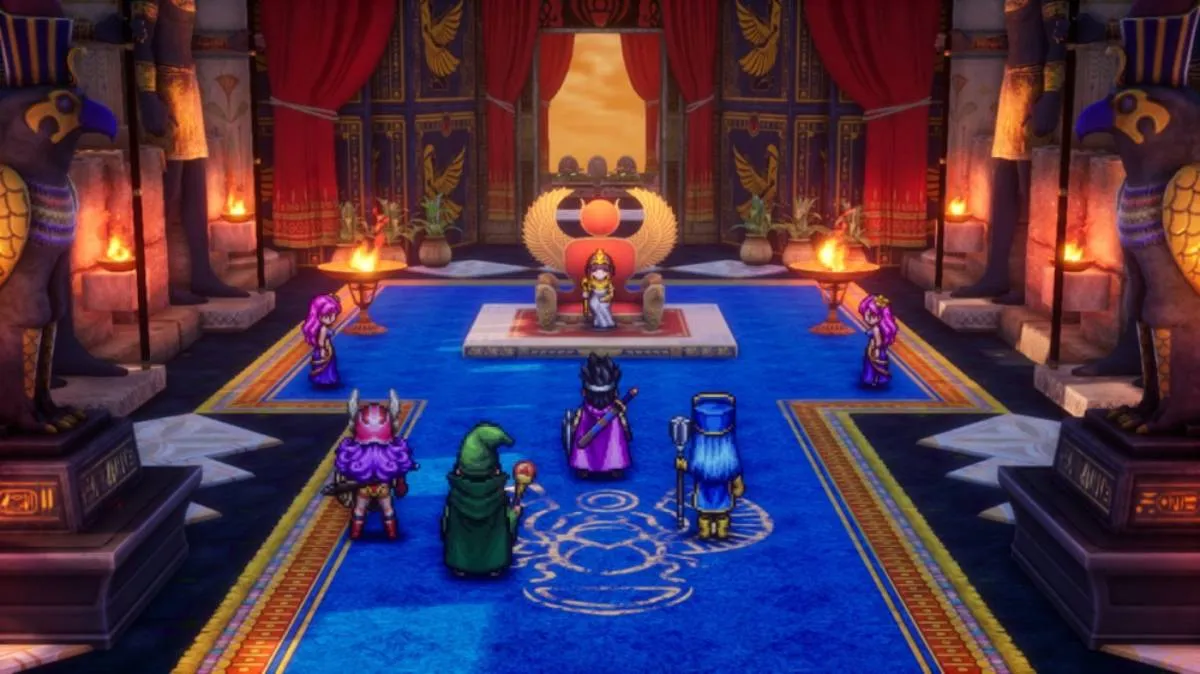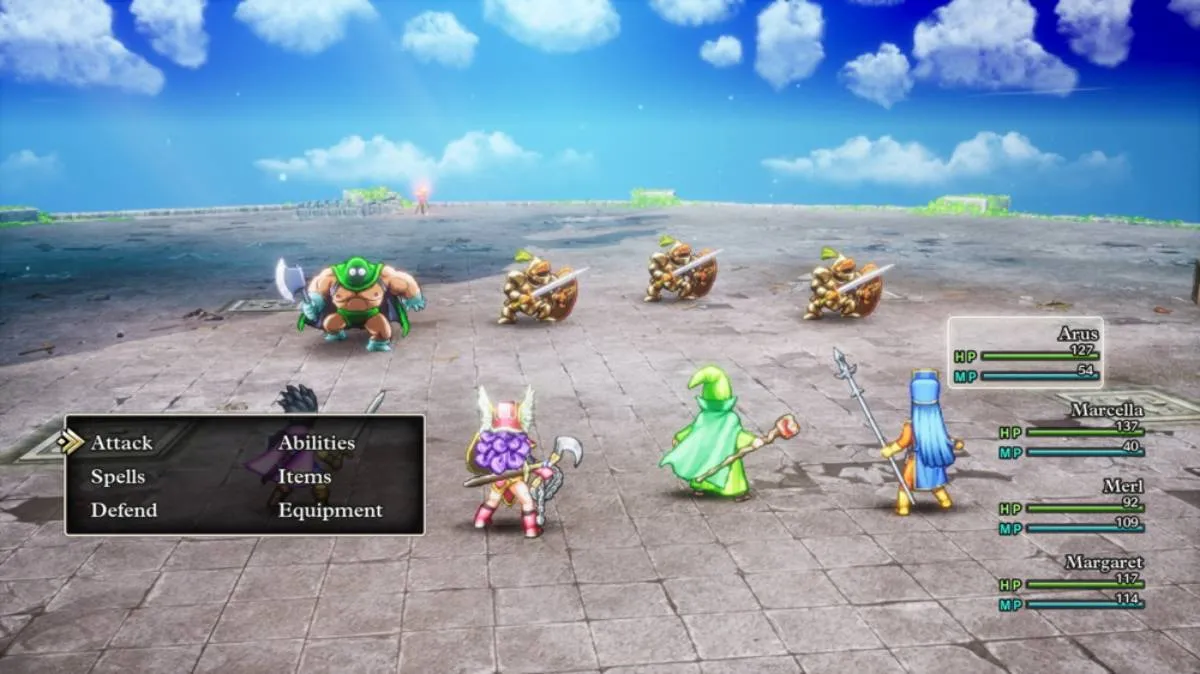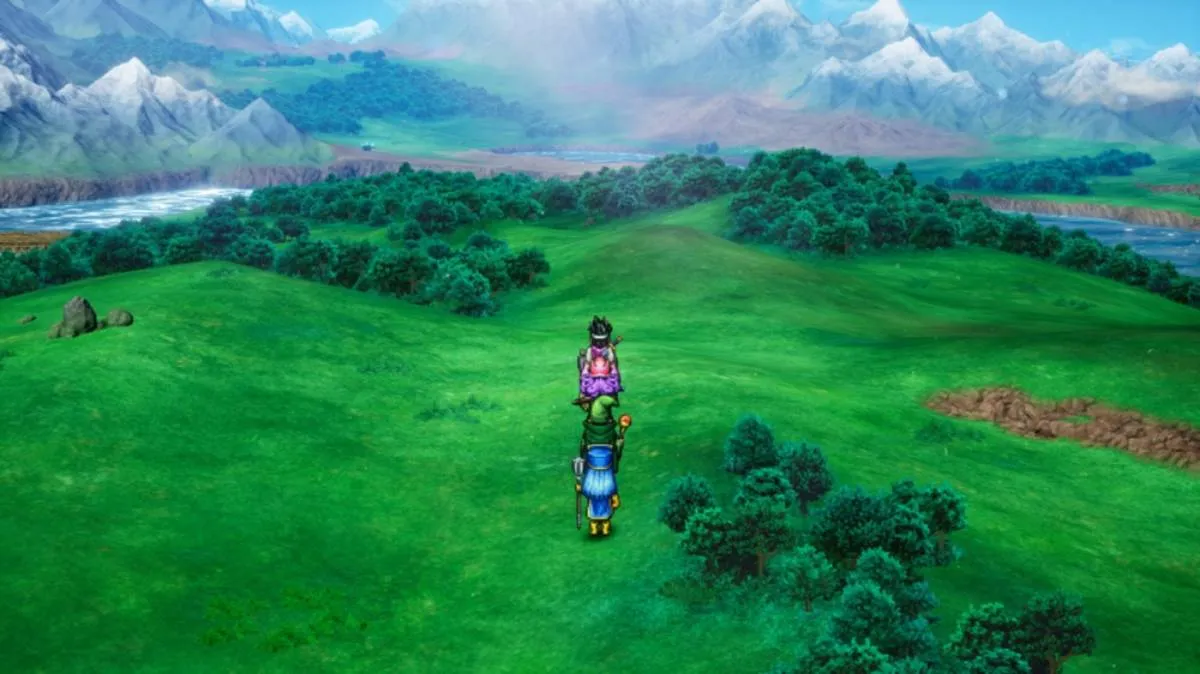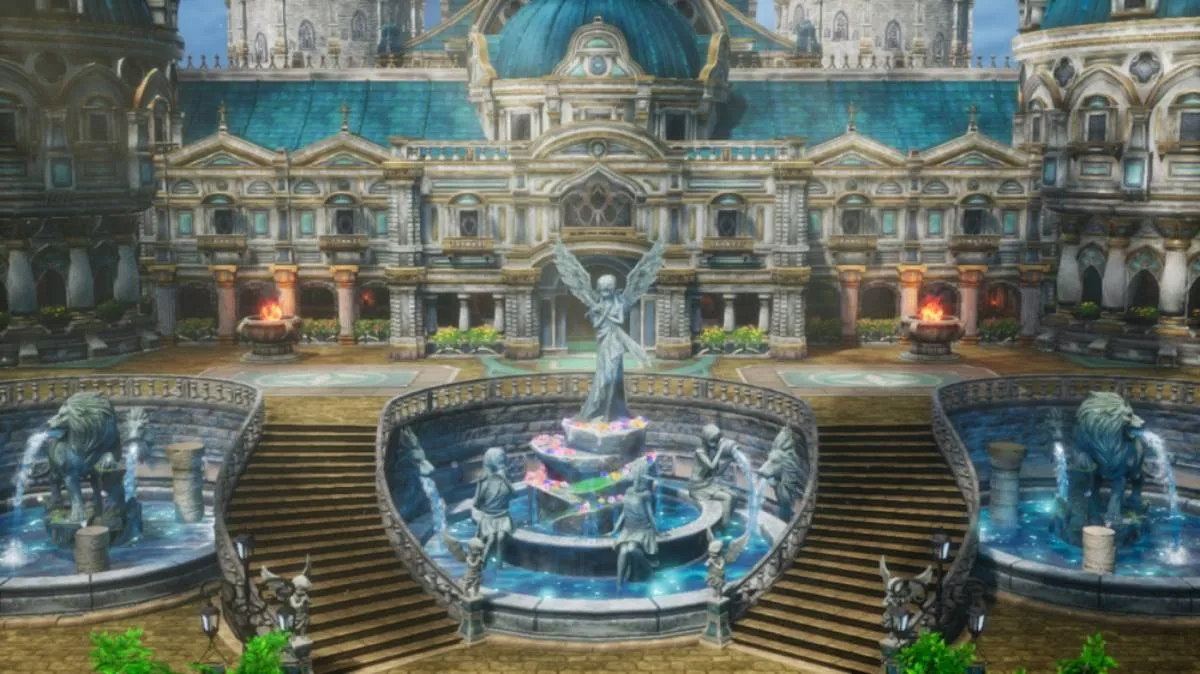Greetings, fellow gamers! I’m Shaun, a passionate aficionado of the Dragon Quest series. While my enthusiasm may not be particularly unique, it does set me apart among many Western players, as we often find ourselves anxiously hoping that any new installment gets localized for global release. As an ardent supporter of the franchise, I am particularly thrilled about the impending Dragon Quest 3 HD-2D Remake. This title not only holds a significant place in gaming history, but it is also receiving a remarkable upgrade that truly honors its legacy. You can check it out here.
Additionally, Square Enix has unveiled plans to remaster the first two installments of the series with the HD-2D treatment as well. It’s apparent why the third entry has been selected as a focal point for this endeavor. Dragon Quest 3 represents a pivotal moment for the franchise, as it broke into mainstream popularity in Japan, bringing the brand into broader cultural consciousness like few games had accomplished before. While the initial pair of titles possess a somewhat rudimentary quality—given their pioneering status—Dragon Quest 3 encompasses nearly all the hallmarks modern players anticipate from a JRPG, offering a nostalgic feel that still feels fresh.
This element becomes even more critical outside of Japan, where the game series has garnered a respectable fanbase, yet has yet to achieve the same breakout success it enjoys in its home territory. This isn’t Square Enix’s first attempt to establish Dragon Quest in Western markets, nor will it likely be the last. Nonetheless, the current spotlight on HD-2D games presents a unique chance to showcase the series’ foundational titles, notably for Dragon Quest 3, which could leverage this moment in a way that its predecessors may not have been able to do.

Editor’s Note: Spoilers for the first three Dragon Quest titles follow.
One fortunate element at play is that, in contrast to many other titles in the series, the first three Dragon Quest games share strong narrative connections. While this could pose a significant challenge for releasing the games in a non-linear order, Dragon Quest 3 cleverly sidesteps this complication by functioning as a prequel. In the timeline of the trilogy, this title acts as the starting point, allowing players to dive into Dragon Quest 3 first and later explore the earlier installments with ease. Or… could there be a catch?
Prequels have been around for quite some time, and they were certainly present during the era of the original 8-bit Dragon Quest titles. History is filled with captivating tales, and this applies to fictional narratives as well. A talented creator can utilize a prequel to expand on the universe’s lore and even provide surprises for those already acquainted with the original stories. The pleasure of a prequel lies in knowing the ultimate outcome while being uncertain about the journey that leads there, offering ample narrative depth. The more familiar the audience is with the outcome, the more fun they can have with the unfolding tale.

There exists another type of prequel; one where participants are unaware they are engaging with a prequel until the narrative unfolds its secrets. Sometimes the audience knows they are viewing a prequel, but critical linkages are withheld until the right moment for maximum impact. This method can be teased out, enough to provoke nostalgia without revealing everything until the climax, creating a powerful effect.
Initially, Dragon Quest 3 appears entirely distinct from the previous two offerings. Instead of revisiting the familiar world of Dragon Quest 1, the player finds themselves in a completely fresh setting, albeit one that may evoke recognition if you are observant. Following an epic journey across the globe, the forces of evil are vanquished. Just when the celebrations begin, a more significant menace is unveiled, compelling you to courageously venture into its own domain to confront the threat head-on.

Suddenly, you’re transported to an entirely new realm. If you’ve experienced the first two games, you’ll immediately recognize the geography, the layout of cities, and even the familiar melodies echoing in the air. This clever nod was previously executed in a smaller scope in Dragon Quest 2. For attentive players, certain details will begin to coalesce, confirming your arrival in Alefgard, but now at a time preceding the events of the original game. The missions you’re tasked with to ultimately reach the final adversary will also feel incredibly familiar.
By the conclusion, many players will likely have pieced together the ultimate twist. It’s revealed that the valiant hero Erdrick, whom the protagonists of the first two adventures descended from, is in fact… you! Thus, the trilogy completes its narrative arc, elegantly closing the loop in a remarkable fashion for games of its era. This unforgettable finale serves as a brilliant capstone to an exceptional game, potentially igniting a desire to revisit the earlier titles.

Of course, most Dragon Quest enthusiasts are already well aware of this twist. Within the realm of Japanese gamers, the original Dragon Quest trilogy holds a monumental place in the medium’s history, making even non-fans likely familiar with this narrative twist. If that describes you, then the order in which you play the games may not hold much significance. Experiencing them in chronological narrative order can actually be rather enjoyable.
Nevertheless, this upcoming release of Dragon Quest 3 is poised to attract newcomers who may not have previously encountered the original trilogy or are unaware of its storyline. For them, the impactful narrative moments may not resonate in the way they were intended. Although Dragon Quest 3 technically comes first chronologically, it was never designed to be experienced first. It’s a fantastic game even in isolation, but it could lose some depth. In a series steeped in nostalgia, the concluding moments of Dragon Quest III are arguably its most meticulously crafted callbacks.
Ultimately, Square Enix seems to be making a wise choice by debuting Dragon Quest 3 before its more primitive predecessors. However, this order does come with challenges—while the essence of Dragon Quest 3 might endure even without its traditional ending flourish, it represents a heavy loss for those diving into this iconic trilogy for the first time.
The Dragon Quest 3 HD-2D Remake is set to launch on November 14, 2024, for the Nintendo Switch, PlayStation 5, Xbox Series X, and PC.




Leave a Reply